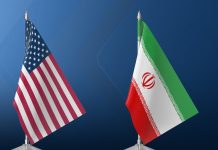NEW DELHI: Indian stock markets lost an estimated $83 billion in market capitalisation this week as escalating military conflict with Pakistan triggered investor concerns and rattled financial markets.
The sell-off deepened after Pakistan launched a retaliatory military operation, Operation Bunyan-un-Marsoos, targeting strategic Indian installations in response to missile strikes by New Delhi earlier in the week.
The Nifty 50 index fell 1.1% on Friday, closing just above the key 24,000-point psychological level. The BSE Sensex also declined 1.1%, finishing below the 80,000 mark it held a day earlier. The two benchmark indexes have now posted a weekly loss of approximately 1.3%, ending a three-week rally — their longest winning streak of 2025.
At one point during Friday’s trading session, total market losses approached $108 billion before partial recovery late in the day.
“With so much escalation, domestic markets are jittery because further retaliatory measures from Pakistan could lead to a prolonged, full-fledged conflict,” said Avinash Gorakshaka, head of research at Profitmart Securities.
Analysts noted that market fundamentals had taken a back seat, with sentiment now largely driven by geopolitical updates. India’s volatility index, known locally as the “fear gauge”, rose for the eighth straight session, reaching a high not seen in over a month.
Twelve of the 13 major sectoral indexes ended the week in the red. Small-cap and mid-cap stocks fared worse than blue chips, with losses of 1.9% and 0.8% respectively.
The Indian rupee also faced pressure, prompting the central bank to step in to stabilise the currency in currency markets. The one notable bright spot was in the auto sector. Shares of Tata Motors surged 8.7% on expectations that a potential UK-US trade deal could bolster sales for its British subsidiary, Jaguar Land Rover (JLR).
The company was the top gainer among the Nifty 50 constituents this week.
Despite ongoing tensions, analysts say optimism over a possible US-India trade deal and India’s resilient economic fundamentals could help limit long-term market damage if diplomatic efforts succeed in easing hostilities. –Agencies





